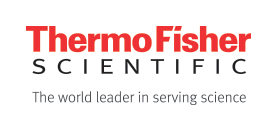High-Performance Native LC-MS for Increasing Analytical Depth when
Characterizing mAbs and other Biopharmaceuticals
DATE
November 24, 2020
TIME
8:00 a.m. PST / 11:00 a.m. EST / 16:00 GMT / 17:00 CET - Duration: 60 Minutes
Overview
Native mass spectrometry has emerged as a powerful tool to understand protein assemblies and post-translational modifications (PTMs) in structural biology. The coupling of liquid phase separations such as size exclusion chromatography (SEC-MS), or cation or anion exchange chromatography (IEX-MS) with native MS, facilitates biopharmaceutical characterization for the analysis of aggregates and size variants of monoclonal antibodies (mAbs).
The ability to perform native LC-MS has been driven by advances in high-resolution mass spectrometry (HRMS) and the associated bioinformatics used for post-acquisition spectral processing. Here, we present an evaluation of the performance of Thermo Scientific™ hybrid quadrupole-Orbitrap™ MS instruments, namely the Thermo Scientific™ Q Exactive™ Plus mass spectrometer and the Thermo Scientific™ Orbitrap Exploris™ 240 mass spectrometer, both with the Thermo Scientific™ BioPharma option for extended mass range, for the characterization of mAbs and other biopharmaceuticals, using native LC-MS. Using head-to-head comparison, we investigate performance for overall sensitivity and analytical depth when using the same sample load on both instrument platforms for different mAbs. We show that when combined with advanced data processing features such as Sliding Window deconvolution in Thermo Scientific™ BioPharma Finder™ software, in-depth characterization of mAbs can be performed, even in cases where non-optimal separations are observed in the chromatographic domain, making native LC-MS a powerful tool for biopharmaceutical characterization.
Brought to you by:

Speakers
 Florian Füssl, Ph.D.
Florian Füssl, Ph.D.Research Fellow,
NIBRT
 Sara Carillo, Ph.D.
Sara Carillo, Ph.D.Application Development Team Leader,
NIBRT
 Ann Thayer
Ann ThayerContributing Editor,
C&EN Media Group
Registration
*By submitting this form, you agree to receive more information on related products and services from the American Chemical Society (ACS Publications) via email, in accordance with the ACS Privacy Policy.
© 2025 American Chemical Society, 1155 16th St NW, Washington, DC 20036, USA. View our Privacy Policy
